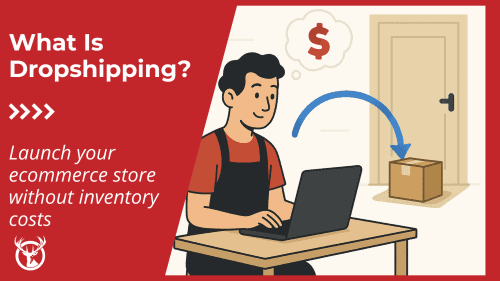Now is an excellent time for eCommerce companies to take a moment to review how their operations align with the sustainable practices that consumers value. There are lots of supply chain opportunities to make your products greener, including ethical materials sourcing and eco-friendly packaging and infill for eCommerce fulfillment. But online shopping has an underside that’s often hard on the environment: returns. It’s time for eCommerce to embrace green returns practices. And, as a bonus, green returns can often save you money.
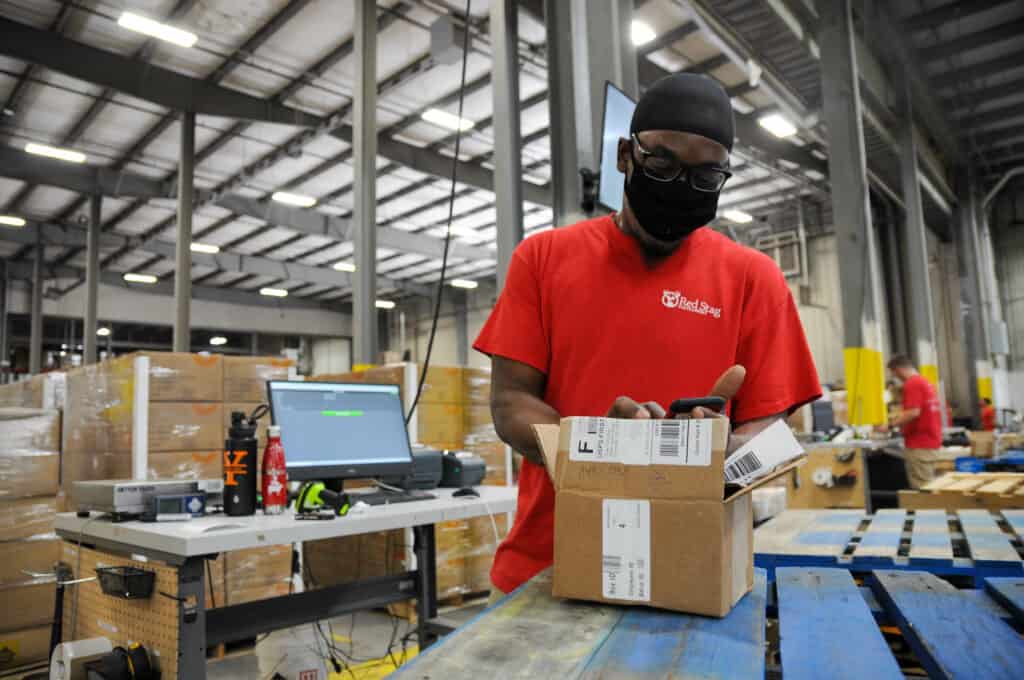
ECommerce has a returns problem
Consumers are more than twice as likely to return online orders as in-store purchases. ECommerce companies have an average return rate of 20%, but companies that sell apparel can have a return rate of up to 50%. Excellent returns policies are vital to eCommerce success because they help build consumer trust and encourage sales.

Online vs. in-store returns
However, online returns are fundamentally different from in-store returns. First, in-store returns include a face-to-face interaction between the customer and a store employee. Consumers expect to bring back items in new condition (unless the product was defective). Most retailers won’t accept an in-store return of a coffee maker that the customer has used or shoes that have been worn on the street. And, when a customer returns an item to a brick-and-mortar store, a clerk usually puts it back in stock immediately.
ECommerce companies must give customers greater latitude for returns. When online purchases come back, they have been shipped in two directions, which may introduce damage or wear on the items. Additionally, online sellers can’t require returns in original, unopened packaging because opening the package is the only way the customer can evaluate the products in their order.
So, online retailers often offer longer return windows and more generous return policies. For example, Zappos gives its customers a full year to return shoes and will even take back pairs that have been extensively walked in. And most eCommerce companies pay for return shipping, even for oversized products such as mattresses.
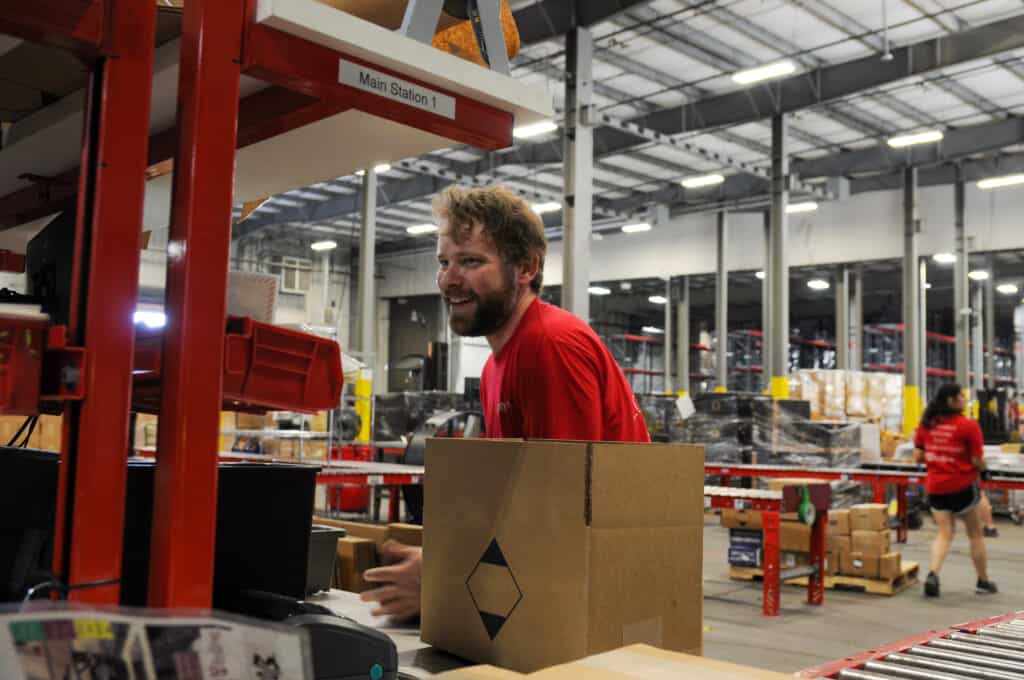
Green returns are the solution to the eCommerce returns problem
Unfortunately, long return windows and more leeway for accepting goods in less-than-perfect condition mean that eCommerce returns may not be fit to go back into stock. Some items, such as mattresses, can’t be legally resold. In addition, returns on seasonal items may come in too late for resale, plus brands sometimes destroy returns to keep the value of their branded products high.
As a result, an estimated 5 billion pounds (25 million tons) of eCommerce returns end up in landfills every year in the U.S. alone.
It doesn’t have to be that way. While you may need to throw away damaged or defective returns, green returns approaches can put many items to use, saving the planet and saving you money.
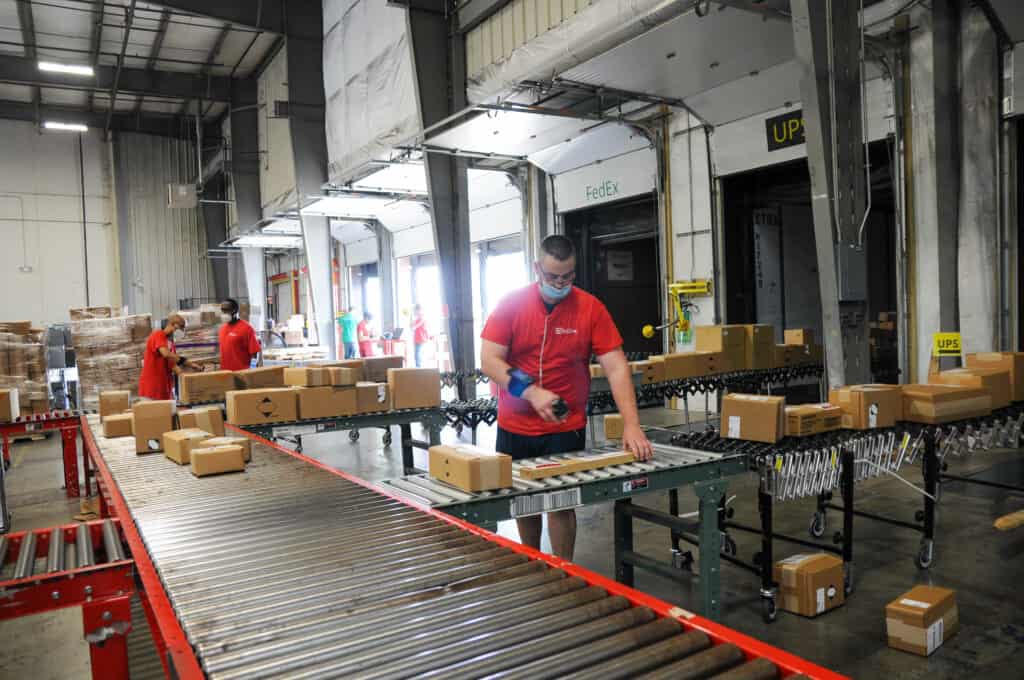
Why green returns matter to your business
As the world heats up, it’s more critical for brands to develop and implement green returns procedures. Here are just a few of the many reasons not to dump your returns:
- Trashing returns can generate bad press. If consumers find out that you’re sending returned items to the landfill, it can tarnish your brand.
- Waste may discourage sales. Consumers aren’t wild about buying something with the knowledge that if they don’t like it, you will give them a refund and then throw the product out. No one wants to contribute to wasteful returns.
- Many returned items, even those with minor damage or light wear, can be resold. You’re throwing away potential earnings when you trash returns.
- Green returns are good for the planet. If the environment is important to your brand image and your customers, green returns processing is essential.
It may take a bit of extra work and ingenuity, but implementing green returns can bring benefits that make the effort worth it.
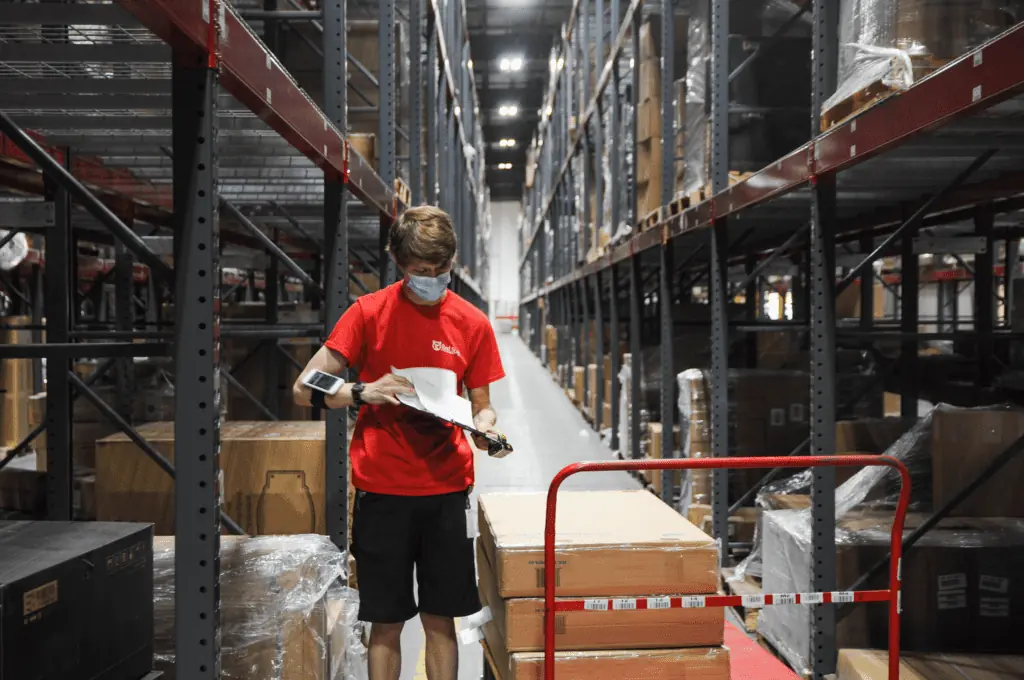
5 ways to keep returns out of the landfill and save money
Returns can be a significant expense for eCommerce companies. Instead of generating a profit, you’re losing money by paying for return shipping. If you can’t resell the product, you’re out the cost of the item as well.
Here are five ways to implement green returns and reduce waste. All but one will help you recoup your losses as well.
The no-return return
For some items, usually small and low-value products, it makes more sense to give a refund without requiring the customer to ship it back. You don’t have to pay for return shipping, and the customer saves the trouble of packing the product up to return it. Plus, the item stays out of the trash (one hopes).
Create a branded seconds shop
Companies have been able to turn returns into a profit center by selling returned or refurbished products at a discount. An excellent example of this type of green returns operation is Allbirds, a shoe manufacturer with sustainability as a core brand value. The company has a generous returns policy that allows customers to return even worn shoes. So, it created a green returns practice with a vertical called Reruns to sell lightly used returns at discount prices.
Sell returns to resellers
You don’t have to create a separate operation to remarket your returns. You can sell them on the secondary market to companies specializing in the resale of seconds and used goods.
Donate returned items
If the logistics of reselling returned items are too costly to make the operation profitable, you can donate your products. You could partner with a charity that can repurpose things you can’t sell as new. Or you could donate returns to a nonprofit such as Goodwill. Donations don’t generate income but might have advantages at tax time.
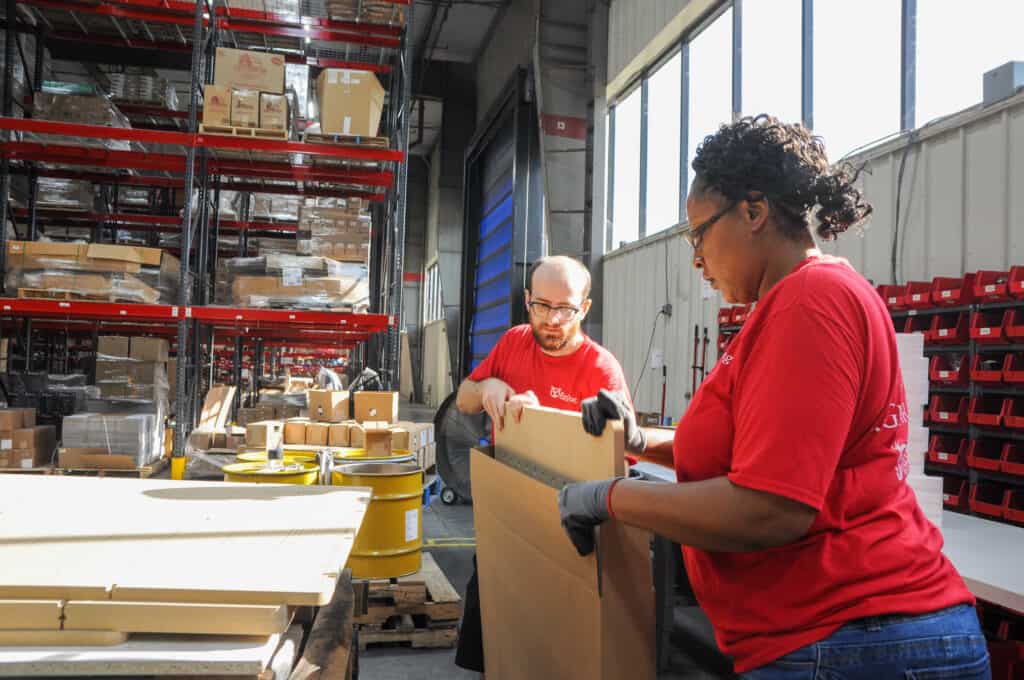
Work with your 3PL to maximize resalability
One common reason companies can’t resell returned items is damaged packaging, even if the product is in new condition. That’s a particular issue for large products shipped without over-boxing. But, with the help of your order fulfillment partner, you can develop a green returns practice that allows you to put these items back in stock. A 3PL that offers kitting services can use the kitting process to unbox and repackage returns, so they look good as new.
You can also lean on your 3PL to help you assess the salability of returned orders. That allows you to cut your losses and protect the environment simultaneously.
How Red Stag Fulfillment helps eCommerce companies implement logistics that help their businesses flourish
Red Stag Fulfillment is a third-party logistics company founded on outstanding customer service. We are committed to helping our clients develop and put in place logistics that serve their brands and help them grow and scale.
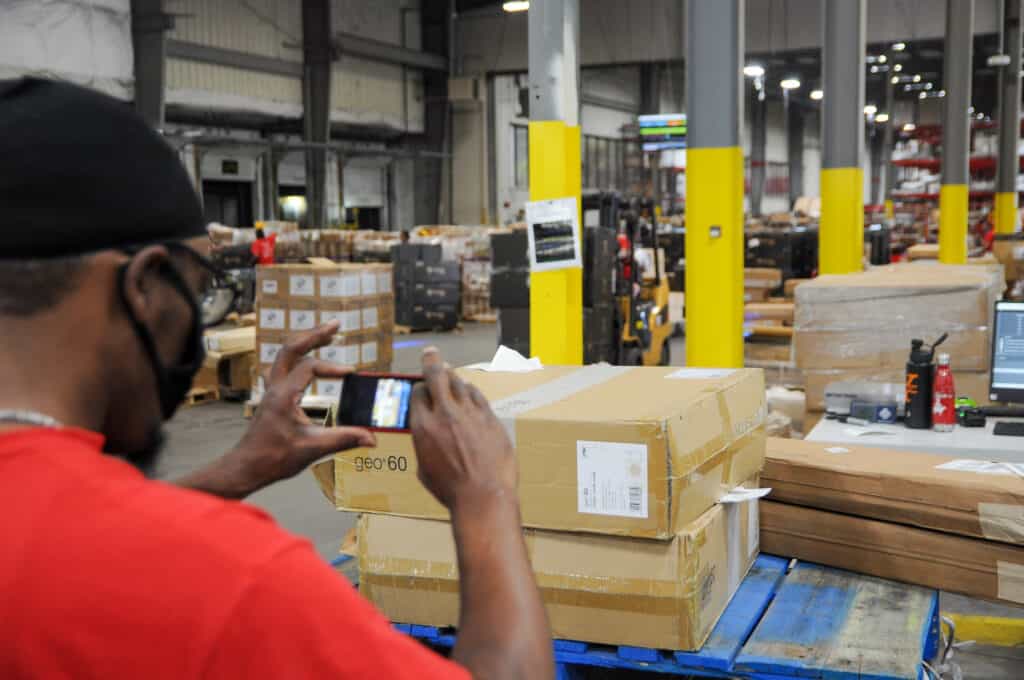
We offer comprehensive reverse logistics services that you can leverage to implement green returns. For example, our professional warehouse associates can evaluate returns and let you know the condition. We can even take a picture so you can judge whether an item is fit to return to stock. And we offer kitting services that can include re-boxing.
Green returns can benefit your bottom line and let your customers know that your brand is genuinely green. With the right fulfillment partner, going green on returns is easy. Red Stag Fulfillment can help you create a better returns policy. Let’s talk.
More about eCommerce returns and sustainability:
- 3PL Returns Processing: How It Works To Help Your Business
- Best Practices For Sustainable Packaging
- What Makes the Red Stag Fulfillment Returns Process Different?










